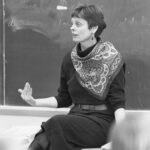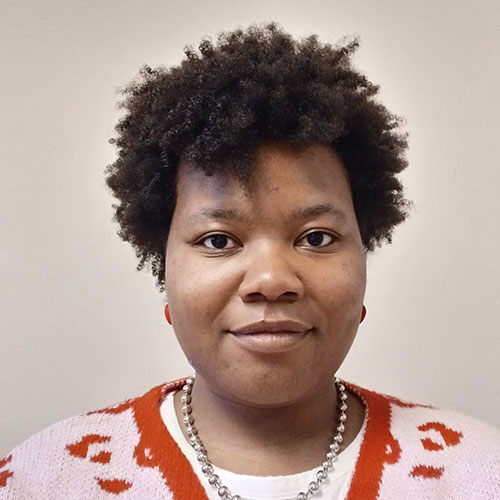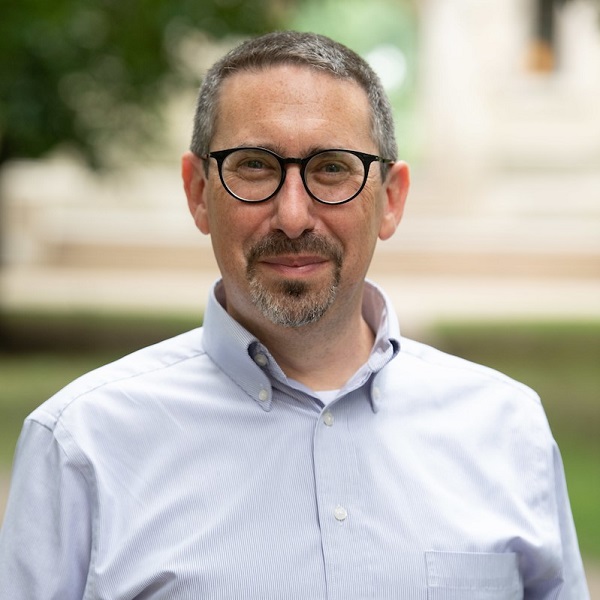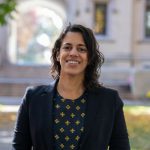
Sophomore research project serves as foundation for article about human rights defenders

A Sophomore Research Program project by sociology major Abigail Beard ’23 provided the foundation for an article recently published in Political Research Quarterly.
Matthew Krain, professor of political science at The College of Wooster; Amanda Murdie, professor of international affairs at the University of Georgia; and Beard, who graduated from the College in 2023, are co-authors of “Silencing Human Rights Defenders One and for All? Determinants of Human Rights Defenders’ Killings.”
The article, which identified mortality differences of human rights defenders in democracies vs. autocracies, stemmed from Krain’s previous research on the targeting and killing of journalists around the world and how the information could help protect journalists. “It occurred to me that the same arguments we were making about journalists applied to human rights defenders—those individuals who are working through non-governmental organizations or on their own bringing to light corruption, human rights abuses and then advocating for change,” he said. “The more I read about when human rights defenders are targeted, the more I realized we don’t really know anything about that.”

Matthew Krain, professor of political science and global and international studies, served as a mentor for Beard during the research process.
Data on human rights defenders who were targeted for various repressive activity around the world from 1997-2003 was published in a 2006 scholarly article. Krain found updated sources for similar information that would require rigorous research to document and verify all the pertinent details when human rights defenders were killed. As a faculty member who had previously used the Sophomore Research Program to advance his research, Krain decided this opportunity would fit the program’s criteria.
He knew Beard as a student in his Introduction to International Relations course. “I could tell from the notes she was taking and the questions she was asking that she was very detail oriented, diligent, and smart, which were the criteria I was looking for,” Krain said. She became a paid sophomore research assistant for the project during the summer of 2020.
She transcribed many interviews, read, and tracked information from all the available reports, and compared details during the process. “I just love the idea of research,” said Beard, who had research and publication experience as a high school student. “I thought it would be really cool to do research again but for a different discipline,” she said.
The work wasn’t without challenges. In addition to the topic being difficult, she found discrepancies between her findings and the original research. Examining the reports and reconciling the inconsistencies were rewarding for her. Krain was impressed with the scope and quality of Beard’s work. “I think it’s remarkable that somebody who was not a major in the field did the work and took those skills and used them in a different field,” he said, noting her use of the research for her own Independent Study research.
The research she completed helped affirm that human rights defenders are at risk. “We tend to think about people in the streets, but we don’t often think about the people who stand up…who are at risk of being targeted, jailed, and face a whole host of other repressive activity, in more authoritarian and repressive societies,” Krain said. However, the research indicated that human rights advocates in authoritarian regimes don’t have the same opportunity to actively speak up, thus they are less likely to be killed.
The results pointed to an importance for supporting democracies and establishing rules that ensure the instruments of governance are strong. “We also need to remind human rights defenders that their job comes with risk beyond being jailed or silenced,” he said. Because of the paper, he was invited to join a group of researchers this summer in Frankfurt, Germany, to identify more effective ways to protect human rights defenders and other social activists.
“Whether Abigail realizes it or not, the work she did is going to become part of a much larger conversation with scholars trying to identify ways to protect human rights defenders,” he said. The data is available publicly for others to use to ask different questions or to verify their work. “There is a reason Abigail’s name is on this paper, because it could not have been done without the work that she did in gathering all the data so effectively,” Krain said.
He’s grateful for the way this Sophomore Research Program at the College provides this opportunity for students and faculty to work together. “The funded assistance is great,” he said, “But the fact that our institution is really dedicated to giving students the tools and experience to be able to do independent research is a real benefit.”
“The experience changed the trajectory of my college career. It was a gateway into doing complex research on my own for my I.S. on ‘Creating a Caring Community: An Examination of Mutual Aid Networks,’” Beard said She plans to pursue a Master of Public Health degree and a public health career, combining her interest in social sciences and hard sciences. She is confident all her Wooster experiences, in particular the Sophomore Research Program, strengthened her skills in research, data management, and data analysis, and boosted her sense of pride and resilience. The program is an important option for Wooster students to consider. “It offers an ideal experiential learning opportunity to learn how to do research and build many critical skills,” she said.
Posted in Experiential Learning, News on February 16, 2024.
Related Posts
Related Areas of Study
Political Science
The study of power, with concentrations in U.S. politics, international relations, political theory and comparative politics.
Major MinorGlobal & International Studies
Economics, history, and political science courses with a global and international perspective
Major

